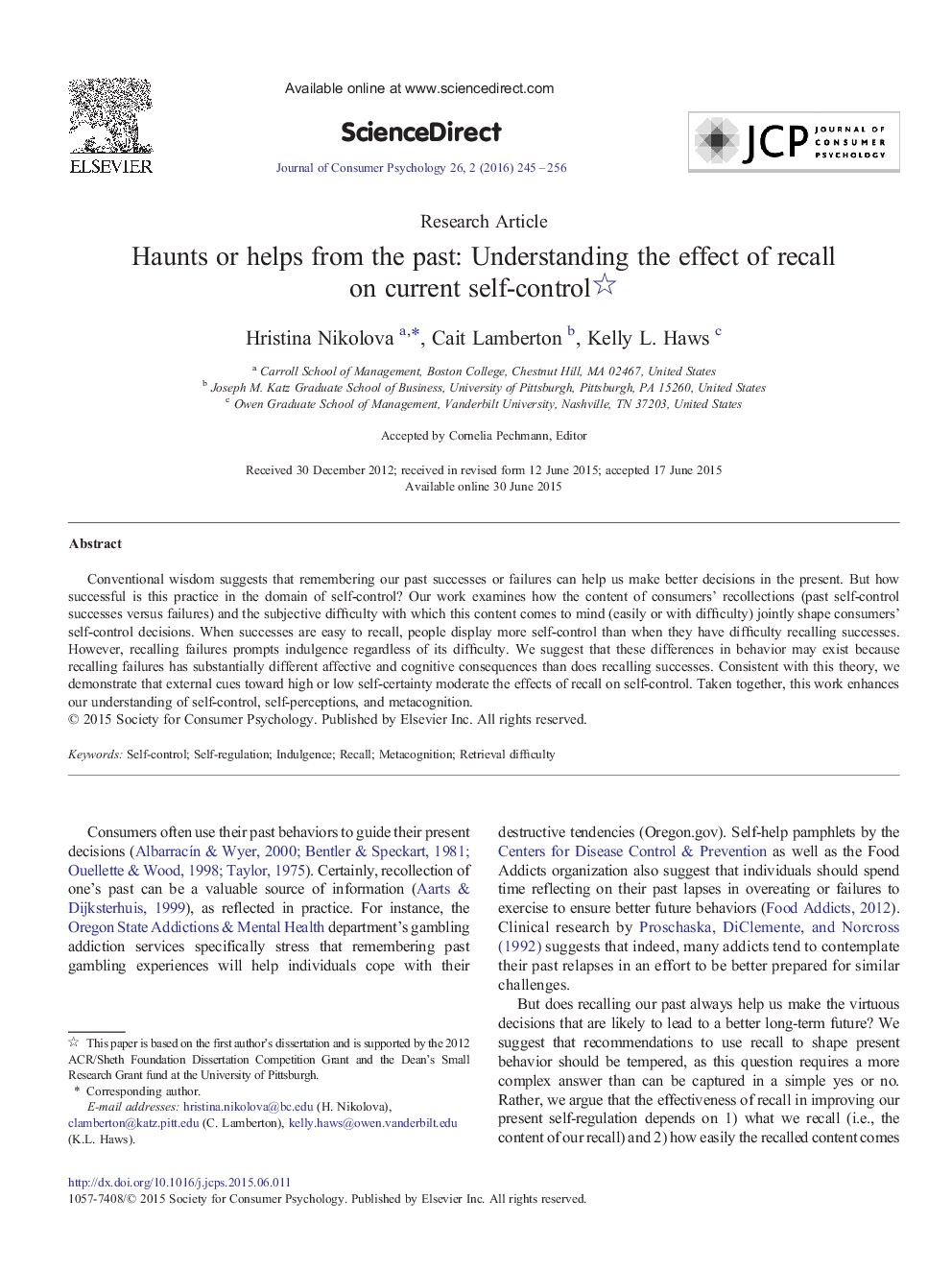| کد مقاله | کد نشریه | سال انتشار | مقاله انگلیسی | نسخه تمام متن |
|---|---|---|---|---|
| 881985 | 911910 | 2016 | 12 صفحه PDF | دانلود رایگان |
Conventional wisdom suggests that remembering our past successes or failures can help us make better decisions in the present. But how successful is this practice in the domain of self-control? Our work examines how the content of consumers' recollections (past self-control successes versus failures) and the subjective difficulty with which this content comes to mind (easily or with difficulty) jointly shape consumers' self-control decisions. When successes are easy to recall, people display more self-control than when they have difficulty recalling successes. However, recalling failures prompts indulgence regardless of its difficulty. We suggest that these differences in behavior may exist because recalling failures has substantially different affective and cognitive consequences than does recalling successes. Consistent with this theory, we demonstrate that external cues toward high or low self-certainty moderate the effects of recall on self-control. Taken together, this work enhances our understanding of self-control, self-perceptions, and metacognition.
Journal: Journal of Consumer Psychology - Volume 26, Issue 2, April 2016, Pages 245–256
